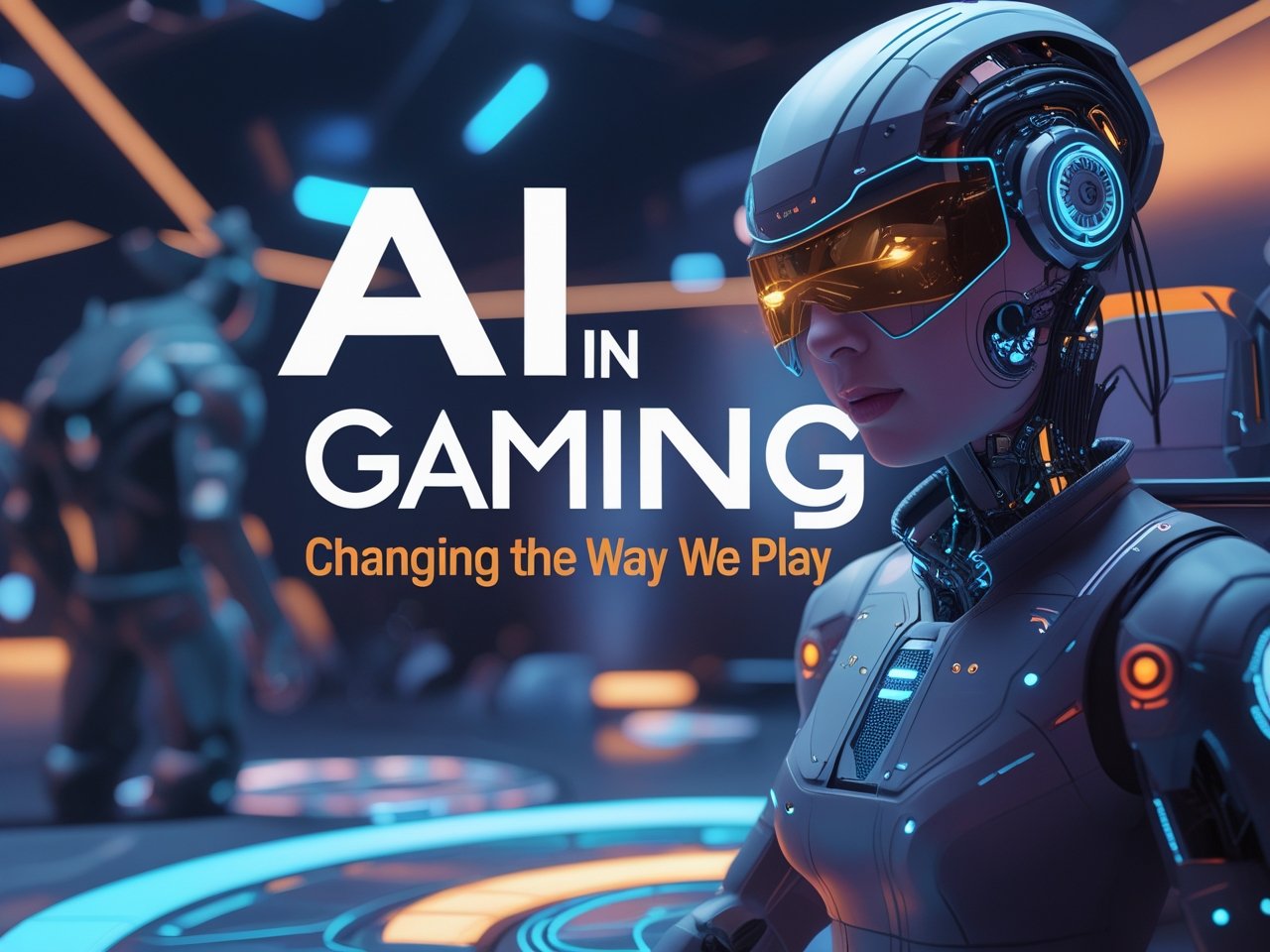AI has become a riding force in remodeling industries, and the gaming world is not any exception. From improving player stories to revolutionizing game improvement, AI is redefining how we play and have interaction with games. In this newsletter, we delve into how AI in Gaming: Changing the Way We Play is revolutionizing game development and player studies. Explore how AI is shaping the destiny within the gaming.
AI in Game Development
Game development is a complicated system that includes designing characters, creating environments, and constructing attractive narratives. AI has significantly streamlined this procedure by way of:
1. Procedural Content Generation
AI algorithms allow builders to create full-size, dynamic game worlds with minimal manual intervention. Games like No Man’s Sky utilize AI-driven procedural era to craft billions of particular planets, each with awesome ecosystems and terrains.
2. Realistic NPC Behavior
Non-Playable Characters (NPCs) powered by AI showcase lifelike behaviors and selection-making. For instance, in The Last of Us Part II, NPCs react dynamically to the participant’s actions, creating a greater immersive enjoy.
3. Faster Game Testing
AI automates trying out by using simulating player behaviors, identifying bugs, and optimizing recreation mechanics. This reduces development time and ensures higher-high-quality releases.
Enhancing Player Experiences
AI isn’t only a tool for developers; it notably enhances how players have interaction with games. Here are a few key regions where AI improves player stories:
1. Personalized Gameplay
AI analyzes participant behavior to provide tailor-made gaming experiences. For instance, AI in Red Dead Redemption 2 adjusts in-recreation events primarily based on player selections, making each playthrough unique.
2. Intelligent Difficulty Scaling
Games like Resident Evil four employ AI to adapt difficulty levels in actual-time, making sure a balanced task that keeps gamers engaged.
3. Virtual Opponents
AI-powered opponents offer a dynamic mission by getting to know from participant techniques. This is obvious in chess video games like AlphaZero, wherein the AI evolves to outplay human warring parties.
4. Voice and Gesture Recognition
AI-pushed voice and gesture recognition technology allow for greater intuitive gameplay. This is mainly impactful in virtual fact (VR) and augmented truth (AR) video games, in which natural interactions decorate immersion.
AI and Multiplayer Gaming
AI is likewise reshaping multiplayer gaming, imparting new ways to connect and compete:
- Matchmaking Systems: AI-driven algorithms examine participant ability levels, ensuring balanced matchmaking in video games like League of Legends.
- Anti-Cheat Mechanisms: AI detects and prevents cheating by way of analyzing gameplay styles, maintaining equity in competitive environments.
- Dynamic Narratives: In multiplayer RPGs, AI creates dynamic storylines that evolve primarily based on collective participant movements, fostering collaborative gameplay.
Future Possibilities
The integration of AI in gaming is simplest just beginning. Here’s a glimpse of what the future holds:
Fully Autonomous NPCs
Future games may additionally characteristic NPCs that analyze and evolve in the course of the game, developing unheard of tiers of realism.
Hyper-Personalized Gaming
AI will allow hyper-personalized studies, adapting narratives, environments, and demanding situations to man or woman participant possibilities.
AI-Powered Game Creators
AI should allow players to create their personal video games by using sincerely describing their imaginative and prescient. Platforms like OpenAI’s Codex are already making strides in this direction.
Real-Time Language Translation
AI will facilitate real-time translation in multiplayer video games, breaking language boundaries and fostering worldwide connections.
Challenges and Ethical Considerations
Despite its capacity, the usage of AI in gaming increases several challenges:
- Privacy Concerns: Collecting player information to energy AI-pushed reviews should comply with privateness regulations.
- Bias in AI Algorithms: Developers ought to make sure AI structures are independent to keep honest gameplay.
- Over-Reliance on AI: Excessive automation ought to stifle creativity and originality in game layout.
AI in gaming is absolutely changing the manner we play, offering richer, more immersive reviews and pushing the bounds of what’s possible. As technology evolves, AI will keep to shape the gaming industry, growing opportunities for each developers and gamers to explore new frontiers. Whether thru smarter NPCs, customized gameplay, or modern multiplayer features, the future of gaming powered via AI is as thrilling as it is transformative.







